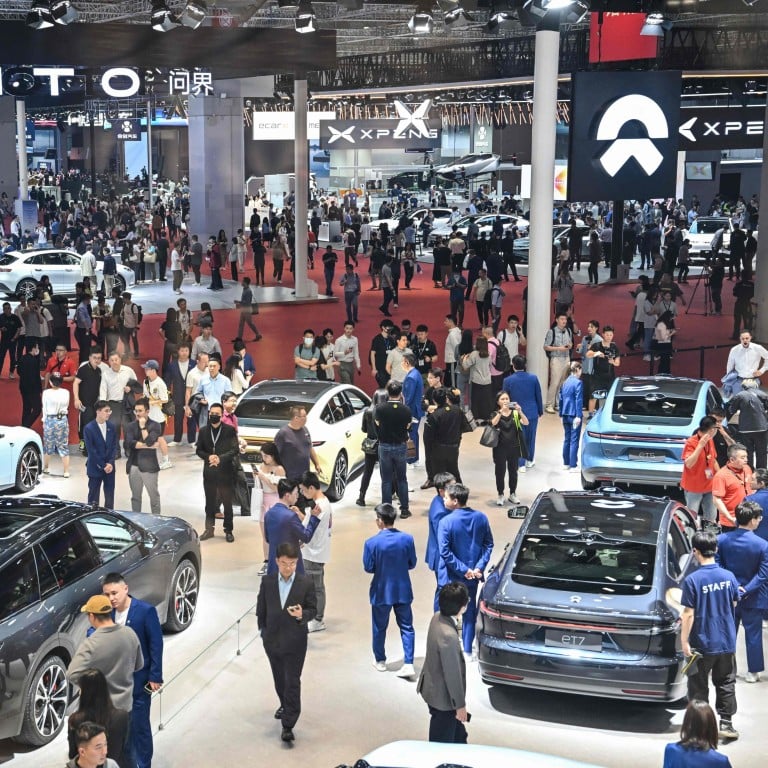
EV investors say China will need to catch up in advanced chips to meet future needs of country’s booming sector
- China is currently unable to access advanced chips, such as those used in the latest smartphones and laptops, due to US trade sanctions
- Investors say China competitors are closer to customers though and have made progress in other areas, like lidar
China is still heavily reliant on the West, especially the United States, for high-end chips, which could pose a challenge in future for the country’s booming electrical vehicle (EV) industry, according to investment experts speaking at a venture capital conference.
“The chip front is challenging … [and] it will be the biggest challenge for the EV industry,” Yuan Bing, co-founder of Rockets Capital, said on Tuesday in an EV & new energy panel at the China Private Equity Summit 2023 in Hong Kong. “It is a hard uphill battle, with a long way to go. We still have a lot of catching up to do.”
Rockets Capital is a private equity firm established by Chinese EV start-up Xpeng.
China is currently unable to access advanced chips, such as those used in the latest smartphones and laptops, due to US trade sanctions. Although the country has formed an army of producers that are able to churn out mature node chips for use in present day cars, more advanced chips will be needed in future to power the next generation of EVs.
A petrol-powered car needs around 200 chips, whereas an EV – on average – needs more than 1,000 chips. China’s car chip output in 2023 is expected to reach US$17.2 billion, up 55 per cent from the value output size in 2018, according to a recent report by Askci Consulting Co. Chinese carmakers have ramped up in-house production and third party suppliers such as Horizon Robotics and Black Sesame have also joined the fray.
Baidu-backed Hesai to offer smaller and cheaper lidar sensors for smart EVs
Ian Zhu, managing partner at Nio Capital, a private equity firm affiliated with rival EV start-up Nio, said Chinese players have a key advantage over their Western competitors – they are closer to their customers.
“Many of the chips will be redesigned and a lot of Chinese players are present, they are closer to their customers, and receiving the specifications [from carmakers],” said Zhu. “Plus, [auto] chips are not the most sensitive chip area, they are not [currently] at the chief ban level.”
Yuan said that in certain areas of EV tech, China has already made progress with import substitution or even upgrades, such as the precision mapping used in lidar (light detection and ranging) applications.
Lidar sensors are seen as an essential component in developing fully autonomous driving – enabling the car to navigate heavy urban traffic without human intervention. But the high research-and-development costs involved are a challenge for many companies.
Yuan said China’s lidar sensor firms still need time to scale up and make the industry profitable, even though their technology has become world-leading. “The [Lidar sensor] companies we are investing in are lagging behind a little bit, but in a couple of years they will be profitable and will lead the industry.”
Zhu also called on global investors to reduce their concerns about state involvement in China’s crowded EV industry, including subsidies. He argued that today’s market leaders are companies that are producing vehicles that meet consumer needs.

